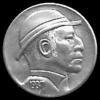Faith in what?
-
Recently Browsing 0 members
- No registered users viewing this page.
-
Similar Content
-
- 44 replies
- 1,792 views
-
- 16 replies
- 1,081 views
-
- 10 replies
- 2,136 views
-
- 10 replies
- 984 views
-
- 85 replies
- 4,299 views
-






Recommended Posts